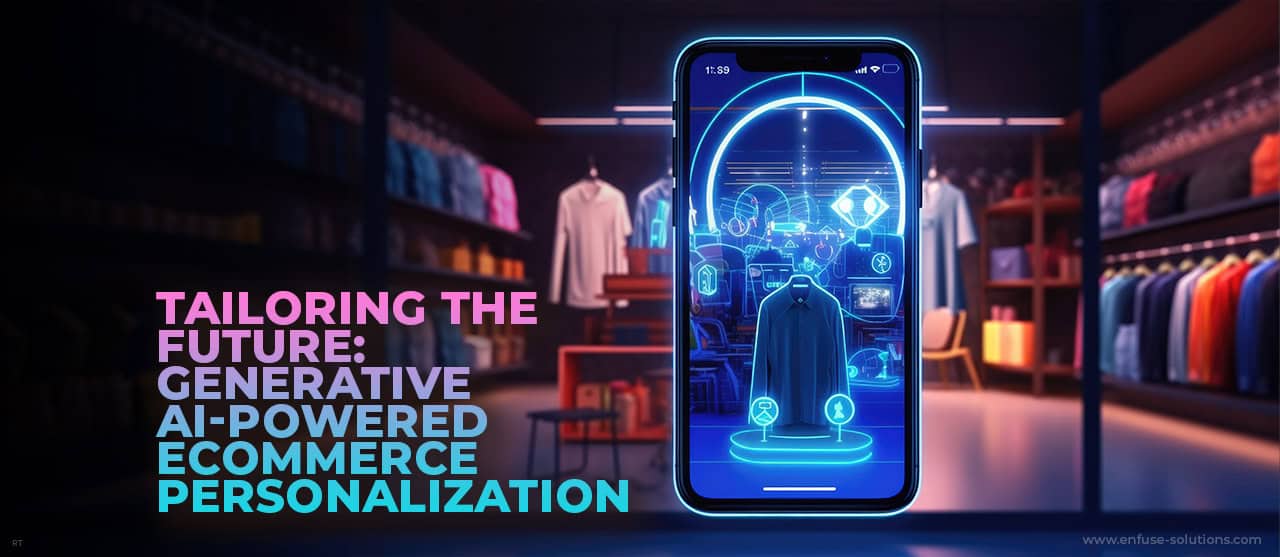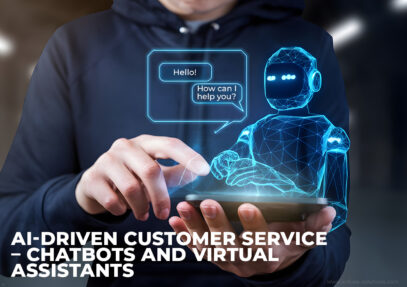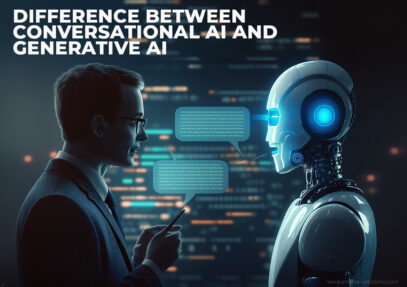
Personalization is not just a buzzword – it’s a customer expectation. On average, a notable 76% of customers report frustration when companies fall short in delivering personalized interactions. The consequences of this frustration for businesses are often quite evident. About 63% of customers opt to discontinue purchases from brands employing subpar personalization tactics.
Surely, there’s a gap in how businesses approach personalization. But, as it stands, generative AI (or GenAI) is a good candidate to meet customer demands and lead the eCommerce personalization efforts.
The Role Generative AI Can Play In Personalization
Personalization is about understanding your customers and providing them with relevant and engaging experiences. Let’s delve into the various aspects of eCommerce personalization that can be powered by generative AI.
1. Product Recommendations
One of the most prominent applications of GenAI solutions in eCommerce is in providing product recommendations. According to Accenture, 91% of customers say they are more likely to shop with brands that provide offers and recommendations that are specifically relevant to them.
Generative AI algorithms can provide hyper-specific recommendations for things that are more likely to appeal to a user by examining prior actions, including search history, purchase history, click-through behavior, social media activity, and even demographic data.
Amazon, for instance, recommends products based on user profiles, purchase history, and even current product views by evaluating a massive dataset of user interactions, which improves not only the user experience but also sales and customer retention.
2. Personalized Content
As per research, 67% of consumers feel it’s crucial for brands to adjust content automatically based on customer context. In fact, 42% get annoyed when content isn’t personalized. Generative AI can create personalized content that resonates with individual customers.
Whether it’s tailoring email marketing campaigns, website content, personalized emails, targeted ads, or even social media posts, generative AI solutions can analyze user data to provide content that is relevant to each customer’s interests and preferences.
3. Dynamic Pricing
With the help of generative AI, retailers can now provide relevant pricing to every customer based on their needs. GenAI algorithms can adjust prices based on various factors, including demand, competitor pricing, and even a customer’s browsing history — aiming to maximize profits and sales by offering the right price to the right customer at the right time.
For example, the well-known ride-sharing company Uber uses generative AI to provide dynamic pricing, or “surge pricing.” Uber’s AI algorithms change pricing during peak times or when there is a strong demand in a certain location to entice more drivers to become available and guarantee faster pickups. Uber may also adjust prices in reaction to changes in demand by using real-time data on trip requests, driver availability, and traffic conditions.
4. Personalized Marketing
It’s all too easy to become engrossed in the world of numbers, KPIs, and engagement metrics – often overlooking the human element in the process. The truth is that customers are more than just a statistic; they want to be treated like individuals, and this is a sentiment that resonates deeply. A striking statistic by Salesforce underscores this point: a whopping 66% of consumers say that being treated like a person — not a mere number – is of utmost importance when it comes to winning their business.
Generative AI can help create personalized marketing campaigns by segmenting customers and tailoring messages to each group. Whether it’s through email marketing, content marketing, social media, or display advertising, generative AI solutions can ensure that the right message reaches the right audience.
For instance, clothing brands often send personalized discounts to shoppers who have shown interest in specific products. By analyzing the browsing and purchase history, AI can identify potential sales opportunities and encourage customers to complete their purchases.
5. Chatbots & Virtual Assistants
A new era of sophisticated chatbots and virtual assistants has arrived, thanks to generative AI. These AI-powered tools have transformed from straightforward rule-based systems into dynamic, aware-of-context, and extremely flexible solutions. Thanks to the deep learning and language processing capabilities of generative AI, chatbots can now interact with consumers in natural language, answer queries, and even complete forms and surveys.
Furthermore, chatbots & virtual assistants can:
- Address common (and even sophisticated) questions about products, order statuses, and shipping details
- Provide information on store policies, such as warranty and privacy policies
- Handle appointment scheduling or reservation bookings
- Alert users to ongoing promotions, discounts, or sales events
- Offer assistance with complex issues that require decision-making or product comparisons
An excellent example of how generative AI may be used to deliver superior AI-driven customer care in the eCommerce sector is IBM’s Watson Assistant. This adaptable virtual assistant can carry on natural conversations with users, understand context, and even adjust to meet changing consumer demands.
Wrapping Up
Generative AI is changing how customization in eCommerce is done with its capacity to analyze enormous datasets and help consumers with natural language communication. It has indeed established itself as a crucial tool for eCommerce companies hoping to succeed in the digital age.
At EnFuse, we offer a full range of AI/ML enablement and eCommerce services, from catalog and digital asset management to AI training and annotation. We can embed generative AI capabilities in your eCommerce ecosystem for more personalized and contextual user interactions. Reach out to us to learn more.

















Comment